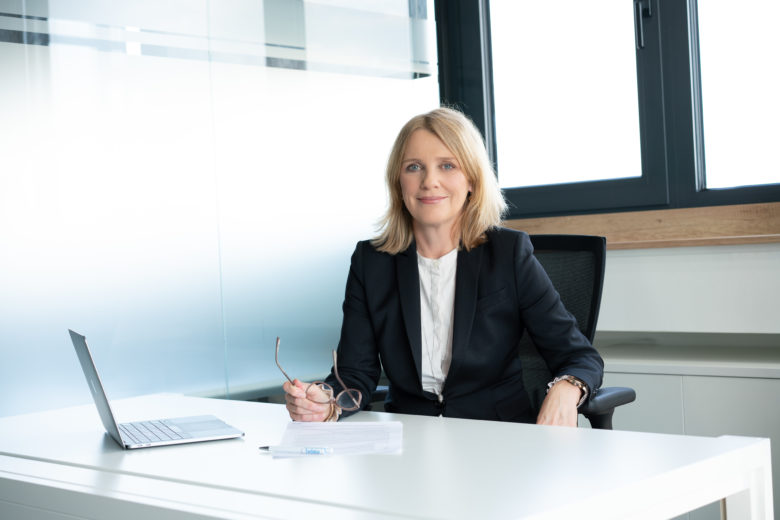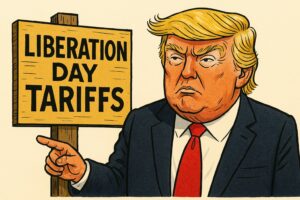Insurtech Thought Leader: It Might Get Relevant For Google, Amazon and Facebook To Enter The Sector

Liselotte Munk has been working in the technology sector for more than 20 years, since the early days of the digital transformation and has established herself as a thought leader in this domain. Her specialty is insurance, actually insurtech. After developing Nordic and European markets for IT companies in the insurance space, such as the US DXC Technology, a global giant with revenues of close to $25B in 2018, she moved to Sofia.
Since October 2018 she has been serving as the CEO of Fadata, the Bulgaria based tech company specialized in digital solutions for the insurance industry. Fadata is a significantly smaller company with a team of less than 200 people, and revenues of €10M, but Munk has an ambitious plan. She is currently responsible for the growth of the company and trying to find new opportunities on the market, but also looking for her new management approach, as it turned out – the business culture between Eastern and Western Europe is quite different. We went to ask Munk about the scenarios for the development of the insurance and insurtech industry, but also about her management strategies and innovation processes.
Trending Topics: What was the reason to start in a much smaller company compared to your previous occupation at DXC Technology and to move to Bulgaria?
Liselotte Munk: The main driver for this step is the market – it’s a major one, and quite exciting. Probably for you, the insurance looks dusty and conservative. But the truth is that a lot of investment in innovation is ongoing. When it comes to the vendor side, I don’t see major consolidation happening yet, so Fadata, as I see it, still has the chance to make it to the standard in the industry. And that’s my aspiration. On a personal level, I wanted to work for a private company, because it’s a more dynamic environment that fits me better.
When your appointment was announced it was said you will be responsible for a new innovation line. What does it mean?
Mainly growth within the European market. The opportunities here are significant, also the challenges. The insurance business here is different. If I have to think of my own experience with insurance since I’m in Bulgaria, there’s a load of paperwork. In a way, it’s also exciting, because on our other markets, in wealthier countries, people spend more on insurance, but at the same time, these are commodity products. It’s not the case in Bulgaria.
What excites you most about insurance and digital transformation?
It’s the first time we see how technology can be used directly to change something for customers. The products of the insurance industry are changing and they are more and more related to safety now, they are becoming part of the lifestyle.
The generation that is growing up today is not defended by things, but by what they are doing. And there comes the question – how do you ensure that (smiling). For instance, you need to ensure events. Those kinds of insurance are becoming more relevant, and this is very exciting. There’s event insurance for wedding cancelation in Switzerland (laughs).
For our customers, it’s all about staying relevant in an ever-changing environment.
Your bio says you grow businesses by becoming a thought leader in the area of digital transformation. What is digital transformation to you?
Digital transformation is about two things – everything will be in the cloud, and everything will be mobile. Beneath that, you will see a lot of words coming out, but this is what matters most.
How does one become a thought leader on such a broad topic?
The process is always circular (smiles). For me, it was relatively much about going to the team and listening, listening to clients, to partners, to the market. And then going back and revise all the time. Because if you think you can sit by yourself all the time, doing desk research and being a thought leader – this is not how I see it. It’s all about relationships, understanding, and listening. Of course, you need some prior knowledge to understand what people are talking about, but the thought leadership is created in the ecosystem of different stakeholders.
What do you expect to see in the insurance industry in the next five years?
We will see a lot of changes in the health area and lifestyle due to the data people are already ready to share. We have the wearables, somebody is surveilling us and monitors how we take care of our health. In the future, this data will be used in a contextual way. Data is already used for predicting personal life expectancy. And this could help for creating tailor-made insurances. Data will bring better prices, better products.
Internet of Things (IoT) is also a topic – imagine connected cars and talking to your car when you have an accident. The car could report it itself – that’s near. If we go a step further, if you have fully interconnected cars, you will not have accidents. And why should people buy insurance then? This also comes with a challenge for insurers, and how to stay relevant. And there are of course opportunities also – developing new products that can cover alternative risks like getting late to an important meeting.
Ok, big data, IoT. Where’s the next buzzword blockchain in all that?
As we used to say, blockchain is a good answer, but we don’t know the question yet. The internet, secure online payments are the technologies that play a major role in the market. It needs to be very cheap to move this to the blockchain. It will eventually come, but I don’t think we as consumers will be able to benefit from this in the near future.
+++ The Next Big Thing in Insurtech: IoT and Blockchain will Bring Back Fairness +++
Who will be the competitors on the market in the next years? As a service company, do you see startups as competition?
It’s hard to predict who the competitors will be, they might come from new industries too. It might be relevant for Google, Amazon, and Facebook to enter the sector. Startups too. I’m happy to see that – there are many startups in the area and this is good. But none of them we see is taking off and becoming a big player yet. But we are looking at such companies in the areas of big data, IoT, AI/Machine Learning.
Speaking of Google and Co, they have so much data and can play around with it. But can you see yourself buying insurance from Google? I believe a time will come when people might need to have a personal touch again.
You say Fadata is keeping an eye on startups. But do you as a company have a process to work with such teams?
We have a model where we don’t swallow small companies and putting them into our processes. I think we are well set to work with startups on a partnership basis. We, indeed have recently acquired a startup that was developing front-end solutions, but acquisitions are not the typical form.
What about internal innovation. What does the cycle look like and what’s the internal capacity?
This is an area where we work a lot with clients and partners. We have the partners advisory board where we discuss whether we put a particular technology on the road map or not. We also get input from analysts, sales unit, clients etc. We then get input and we materialize it. We have a confirmed road map so that the market knows what we will deliver. We release new software each quarter. Growing the Bulgarian team is also part of the plan to expand capacity for innovation.
Do you use a specific methodology to manage transformational processes?
I use a methodology used in SAP. This methodology is about analyzing your business and finding out the key details that are important for me and the C-level team to focus on. Then you rely on that everything else will be taken care of in the operations. I think this is a solid strategy because if we are going to control everything in the transition we will kill ourselves. We need to keep the focus on bigger stuff that needs to chance.
But it’s hard because of the power distance here. People don’t really feel aligned with what we are doing, we need to communicate very transparently.
You mention power distance here. Is there a difference in the business culture you observe in Bulgaria?
There are big differences, of course (laughs). Probably the most notable is the power distance I observe here. In Denmark, we are very informal all the time. We can work on small projects where the CEO is the project manager and works on the same level as the developer. We are very low on hierarchies. It’s the opposite here in Bulgaria. It seems that people are open when you ask them questions but not the other way around. But I have to say, I underestimated the hierarchy and power distance here.
What would be your recipe to turn these trends around?
I’m now inviting all employees to informal coffees and only listen. That’s one instrument to invite for dialogue. On a daily basis, it’s more difficult. It’s also important to be transparent and invite people and share with them how we are doing financially, what are we aiming at. This way people would know that they also can ask questions about things that are not directly related to their own tasks.
What do you think is the quality that brought you where you are today?
Probably the fact that I don’t believe there is a single person who can change everything. It’s all about the team, how you build and collaborate with the team – that’s probably my greatest strength. I think I’m also great in networking, and I have an enormous network of partners and clients, but also within the industry – being there for 25 years.
Many women usually step back and focus on their task, and don’t invest themselves in networking and building relationships. I actually have spent some time of my career doing that. So I know it’s worth it.
Where do you want to see Fadata in five years?
I would love to see Fadata grow locally and create more workplaces. Also, us to play a significant role in the transition of the European insurance industry to a digital platform. And the big dream is that in the worlds effort to eliminate poverty, Fadata to play a role in delivering simple insurance.




























